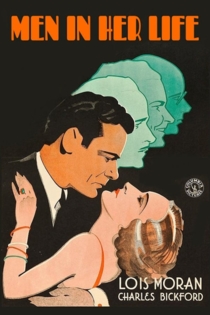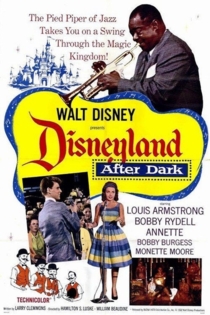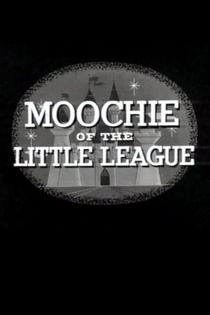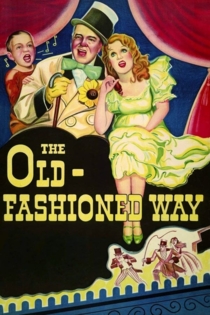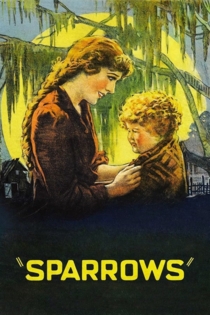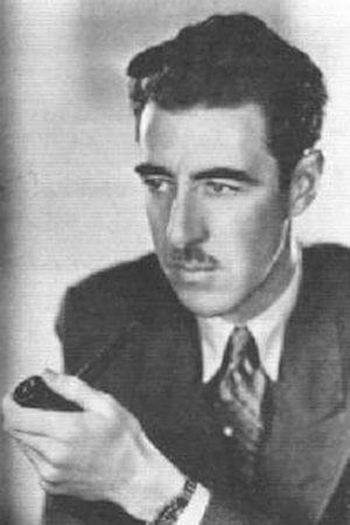
William Beaudine
1892 - 1970William Beaudine (January 15, 1892 – March 18, 1970) was an American film actor and director. He was one of Hollywood's most prolific directors, turning out films in remarkable numbers and in a wide variety of genres.
In 1915 he was hired as an actor and director by the Kalem Company. He was an assistant to director D.W. Griffith on The Birth of a Nation and Intolerance. By the time he was 23 Beaudine had directed his first picture, a short called Almost a King (1915). He would continue to direct shorts exclusively until 1922, when he shifted his efforts into making feature-length films.
Beaudine directed silent films for Goldwyn Pictures (before it became part of MGM), Metro Pictures (also before MGM), First National Pictures, Principal and Warner Brothers. In 1926 he made Sparrows, the story of orphans imprisoned in a swamp farm starring Mary Pickford. Beaudine had at least 30 pictures to his credit before the sound era began. Among his first sound films were short Mack Sennett comedies; he made at least one film for Sennett while contractually bound elsewhere, resulting in his adopting the pseudonym "William Crowley." He would occasionally use the pseudonym in later years, usually as "William X. Crowley."
He ground out several movies annually for Fox Films, Warner Brothers, Paramount, and Universal Pictures. His most famous credit of the early 1930s is The Old-Fashioned Way, a comedy about old-time show folks starring W. C. Fields.
Beaudine was one of a number of experienced directors (including Raoul Walsh and Allan Dwan) who were brought to England from Hollywood in the 1930s to work on what were in all other respects very British productions. Beaudine directed four films there starring Will Hay, including Boys Will Be Boys (1935) and Where There's a Will (1936).
Beaudine was often entrusted with series films, including the Torchy Blane, The East Side Kids, Jiggs and Maggie, The Shadow, Charlie Chan and The Bowery Boys series. His efficiency was so well known that Walt Disney hired him to direct some of his television projects of the 1950s and had him direct a feature western, Ten Who Dared (1960). Beaudine became even busier in TV, directing Naked City, The Green Hornet, and dozens of Lassie episodes.
His last two feature films, both released in 1966, were the horror-westerns Billy the Kid vs. Dracula (with John Carradine) and Jesse James Meets Frankenstein's Daughter. By the end of the decade he was the industry's oldest working professional, having started in 1909.
Beaudine died of uremic poisoning in 1970 in California and was interred in the Hollywood Forever Cemetery in Hollywood.
Boy of Mine
William Beaudine
Ben Alexander, Rockliffe Fellowes
A wealthy banker is a strict disciplinarian with his nine-year-old son Bill. Finally the day comes when neither Bill nor his mother can put up any more with the father's relentlessness and heavy-handed treatment; she leaves and takes Bill with her. The father must decide what's more important--maintaining his iron discipline over his family, or his family itself.
Boy of Mine
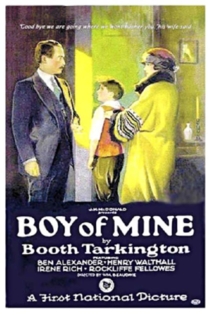
The Narrow Street
William Beaudine
Matt Moore, Dorothy Devore
Simon Haldane works in the office of the Faulkner Iron Works, but he has been raised by his two maiden aunts in an extremely sheltered manner and is basically afraid of everyone and everything. One morning he finds a strange girl shivering in his bedroom, and although he's terrified of her, he manages to call a doctor for her. This starts a rumor that Simon is married. Complications ensue.
The Narrow Street
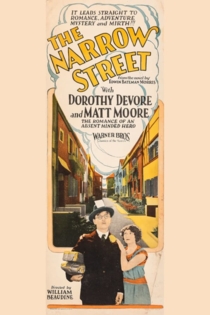
Daring Youth
William Beaudine
Bebe Daniels, Norman Kerry
On the eve of the marriage of her daughter, Alita, Mrs. Allen, unhappily married for 25 years, advocates writer Fannie Hurst's widely publicized mode of living with her husband: only two breakfasts a week together and complete freedom otherwise.
Daring Youth

Watch Your Step
William Beaudine
Cullen Landis, Patsy Ruth Miller
Elmer Slocum has just served a jail sentence for speeding. On his first day of liberty he encounters a physician whose car has broken down and offers to take him to his patient; he is pursued by motorcops for speeding, wrecks his car in a closed street, and knocks down and believes he has killed a policeman. Elmer boards a freight train and makes his way to a small town in Iowa, where he meets Margaret Andrews.....
Watch Your Step
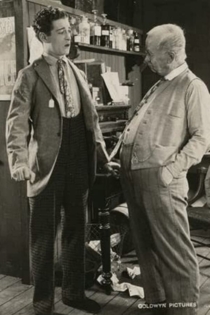
Jiggs and Maggie in Court
William Beaudine
Joe Yule, Renie Riano
Maggie is resentful of being pointed out and laughed at in public because she resembles the cartoon character in the George McManus comic strip "Bringing Up Father." She visits McManus in his studio office and tries to persuade him to stop drawing the syndicated comic-strip. He tells her he will...in 1959. Maggie, not getting any younger, retains counsel and takes McManus to court.
Jiggs and Maggie in Court
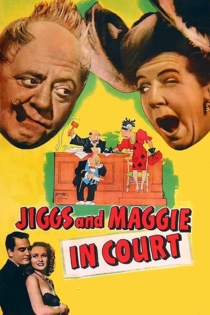
The Printer's Devil
William Beaudine
Wesley Barry, Harry Myers
Brick Hubbard, a "printer's devil", convinces his friend Sid Fletcher to invest in "The Gazette", a local newspaper. Sid pens an editorial that infuriates Ira Gates, a local banker and a power in the town--and who also happens to be the father of Vivian Gates, whom Sidney is in love with. To complicate matters, the bank is robbed and Sidney is suspected of the crime.
The Printer's Devil
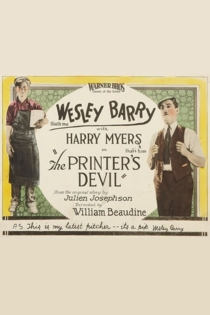
Moochie of Pop Warner Football
William Beaudine
Kevin Corcoran, Alan Hale Jr.
Moochie joins a Pop Warner Football team, but has troubles with the mayor’s son. When the two make amends, they help the team win and go to the Disneyland Bowl, and get to enjoy a visit to the park.
Moochie of Pop Warner Football
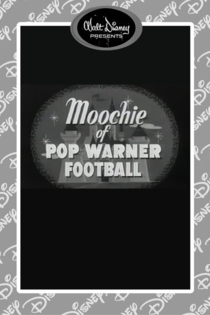
Two Weeks Off
William Beaudine
Dorothy Mackaill, Jack Mulhall
Frances, a salesgirl, is planning a summer vacation at the beach with a girlfriend, who also works at her store. Just as she is getting ready to leave home, Dave, a handsome young plumber, arrives to repair a leaky faucet. Her vacation turns into a bust when it rains at the beach, but a hunky lifeguard shows up to brighten her day. Then, of all people, Dave the plumber shows up, too. Complications ensue.
Two Weeks Off
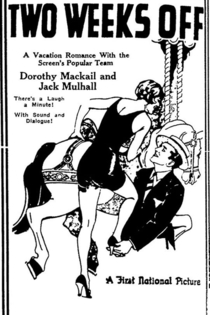
The Story of the Animated Drawing
William Beaudine, Wilfred Jackson
Walt Disney, Leopold Stokowski
Walt Disney discusses the history of animation, beginning with J. Stuart Blackton and his Humorous Phases of Funny Faces in 1906, and including Gertie the Dinosaur.
The Story of the Animated Drawing
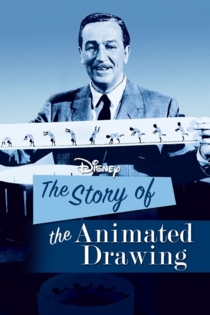
The Plausible Impossible
William Beaudine
Walt Disney
Walt Disney explains some of the techniques of animation, and includes for the first time the pencil test footage of the "Soup Eating Sequence" from Snow White and the Seven Dwarfs. Walt references a book called "The Art of Animation" which shows a technique that is used in animated cartoons that dates back to the ancient Egyptians and Greeks.
The Plausible Impossible
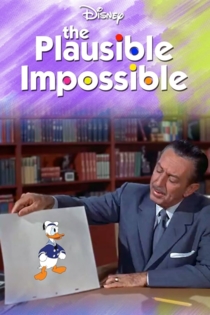
Men in Her Life
William Beaudine
Lois Moran, Charles Bickford
A wealthy ex-bootlegger comes to the rescue of a formerly rich society girl after her gold-digging fiancé leaves her stranded when he finds out she's broke. The bootlegger proposes a deal: he will settle her debts if she teaches him how to be "a gentleman".
Men in Her Life
